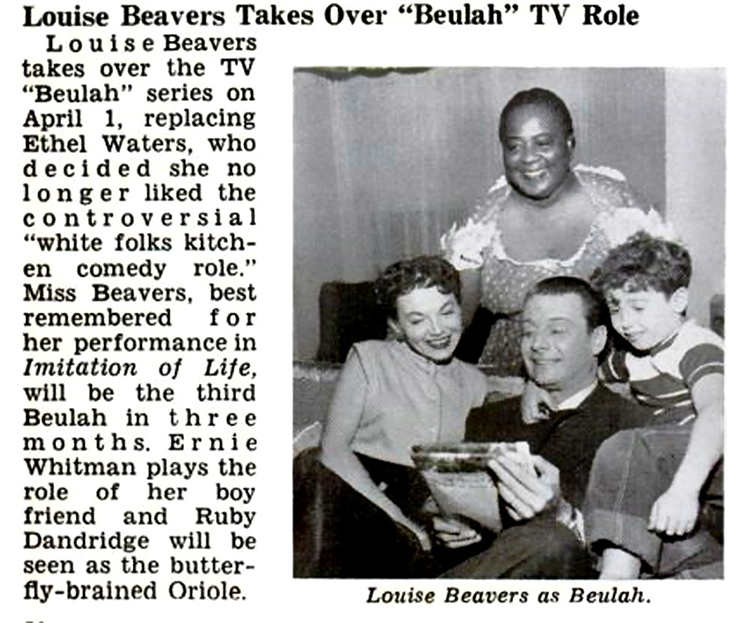The Mammy Archetype: A Black Maiden Syndrome
- By iforcolor in Actress, History, Vaudeville
-
February 1, 2025
Louise Beavers
Prior to Hattie McDaniel’s success in GWTW, another well-known actress during the time period was Louise Beavers. Louise Beavers, born March 8, 1902, was a Black American stage, television, and film actress; is noted to possibly have been a descendant of President James Monroe. Louise Beavers began her acting career in the 1920s, performing with the Lady Minstrels– a group of young women who staged amateur productions and appeared on stage at the Loews State Theatre.
“Louise Beavers (March 8, 1902 – October 26, 1962) was an African-American film and television actress. Beavers appeared in dozens of films from the 1920s until 1960, most often in the role of a maid, servant, or slave. A native of Cincinnati, Ohio. Louise Beavers was a breakthrough actress for African Americans. Beavers became known as a symbol of a “mammy” on the screen. A mammy archetype “is the portrayal within a narrative framework or other imagery of a domestic servant of African descent, generally good-natured, often overweight, and loud”.[” –
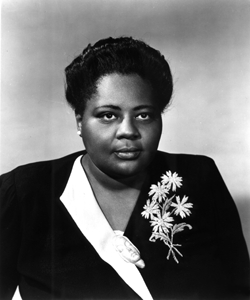
Louise Beavers
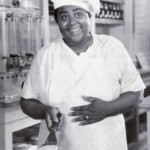
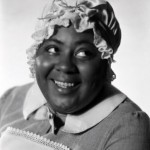
Beavers begin her film career in 1927 and like those before her-most notably Hattie McDaniel; Louise Beavers was often cast for the Mammy role in her films. It is initially stated that Beavers rejected the casting call for a role in the film adaptation of Uncle Tom’s Cabin three times before finally accepting the role, “because of the African roles given to colored people.”
Beavers acclaim in the 1920s was through her role as Julia in the 1929 film Coquette.
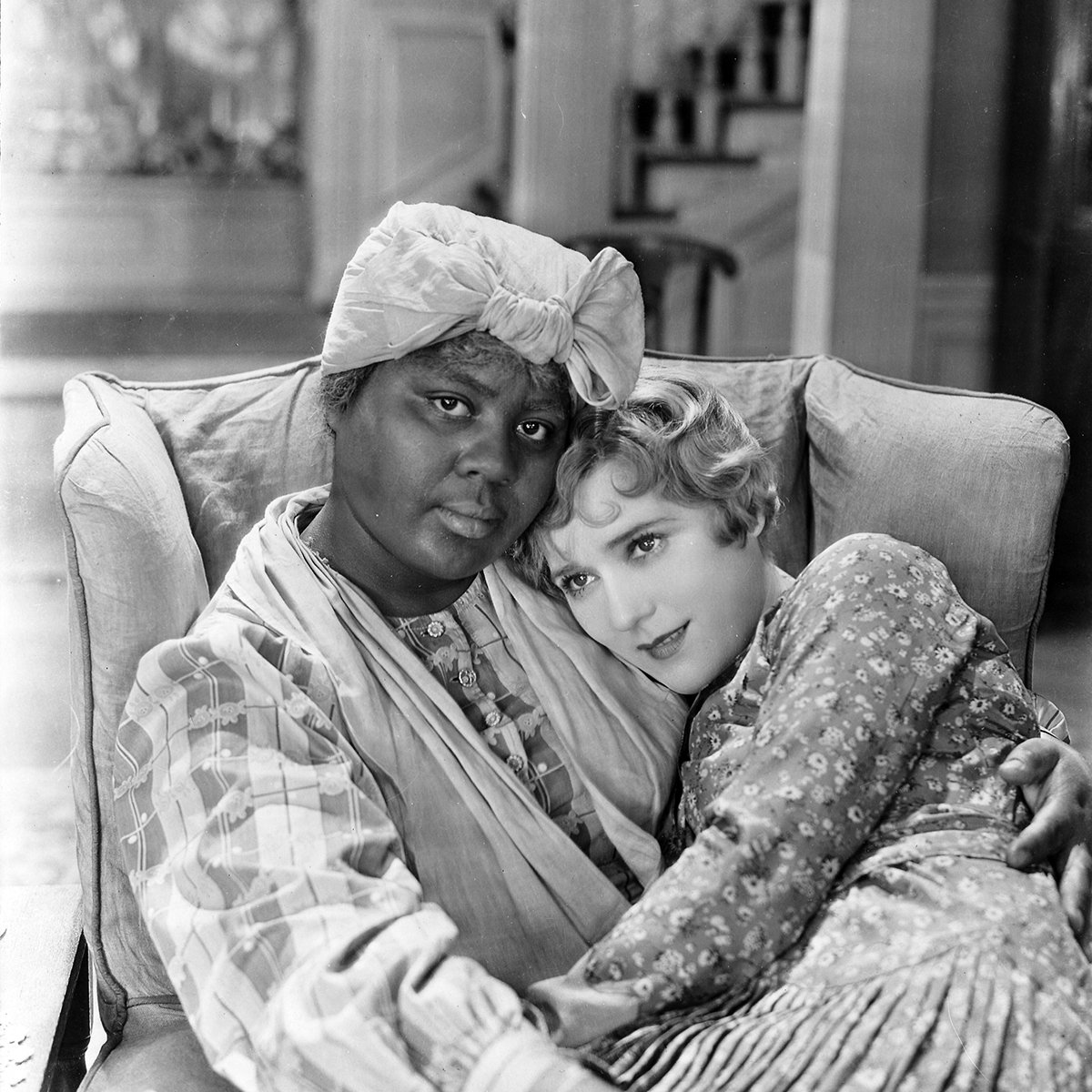
Louise Beavers with Mary Pickford in COQUETTE(’29)
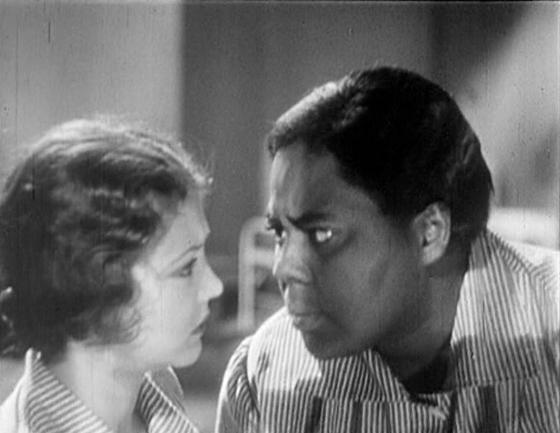
Louise Beavers as Julia in Coquette (1929)
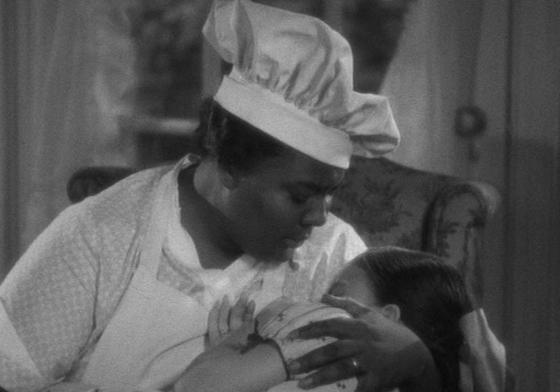
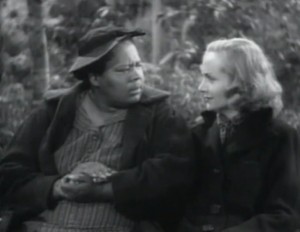
Louise Beavers and Carole Lombard in Made For Each Other
It is believed that this role established Beavers as a prominent African-American actress within the mainstream industry. Because of Beavers’ stature and dialectical voice, she soon became known as the actress to play the Mammy roles.
Beavers was initially hesitant to audition for film roles because of the negative portrayal of Blacks in film. She once said, “In all the pictures I had seen… they never used colored people for anything except savages. However, she won a role in the film Uncle Tom’s Cabin (1927) and went on to play traditional black roles such as those of a slave, a mother figure, a maid or domestic servant.
Beavers was one of three actresses (including Hattie McDaniel and Ethel Waters) to portray housekeeper Beulah on the Beulah television show, the first television sitcom to star a black person. She also played a maid for the first two seasons of The Danny Thomas Show (1953–1955).

In addition to her film work, Beavers conducted theater tours as long as 20 weeks each year.
As Beavers’ career grew, some criticized her for the roles that she accepted, alleging that such roles institutionalized the view that Blacks were subservient to whites. Beavers dismissed the criticism, acknowledging the limited opportunities available but saying: “I am only playing the parts. I don’t live them.” As she became more widely known, Beavers began to speak against Hollywood’s portrayal and treatment of African Americans, both during production and after promoting the films. Beavers became active in public life, seeking to help support African Americans. She endorsed Robert S. Abbott, the editor of The Chicago Defender, who fought for African Americans’ civil rights. She supported Richard Nixon, who she believed would help black Americans in the struggle for civil rights.
Beavers’ best-known role was that of Aunt Delilah in Imitation of Life (1934).
Imitation of Life
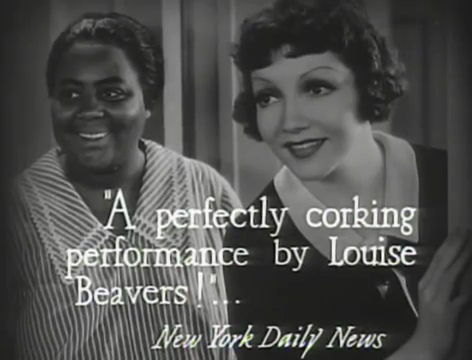
1934 American drama film directed by John M. Stahl. The screenplay by William Hurlbut, based on Fannie Hurst’s 1933 novel of the same name, was augmented by eight additional uncredited writers, including Preston Sturges and Finley Peter Dunne. The film stars Claudette Colbert, Louise Beavers, Warren William, Rochelle Hudson, and Fredi Washington.
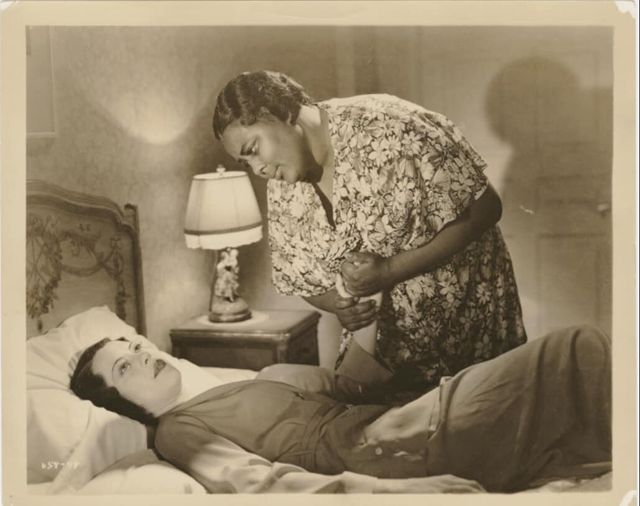
Fredi Washington and Louis Beavers in “Imitation of Life” 1934
The film was originally released by Universal Pictures on November 26, 1934, and re-released in 1936. A 1959 remake of the same title was directed by Douglas Sirk.
This role transformed Beavers from a supporting actress; which she had previously played for White actresses, into the star of her films. Imitation of Life detailed the story of a Black maid played by Beavers, who inherits a pancake recipe. This movie’s mammy gave the valuable recipe to Miss Bea, her boss. Miss Bea successfully marketed the recipe and she offered Aunt Delilah a twenty percent interest in the pancake company.
The themes of the film, to the modern eye, deal with very important issues—passing, the role of skin color in the black community and tensions between its light-skinned and dark-skinned members, the role of Black servants in White families, and maternal affection.
Some scenes seem to have been filmed to highlight the fundamental unfairness of Delilah’s social position—for example, while living in Bea’s fabulous NYC mansion, Delilah descends down the shadowy stairs to the basement where her rooms are. Bea, dressed in the height of fashion, floats up the stairs to her rooms, whose luxury was built from the success of Delilah’s recipe.
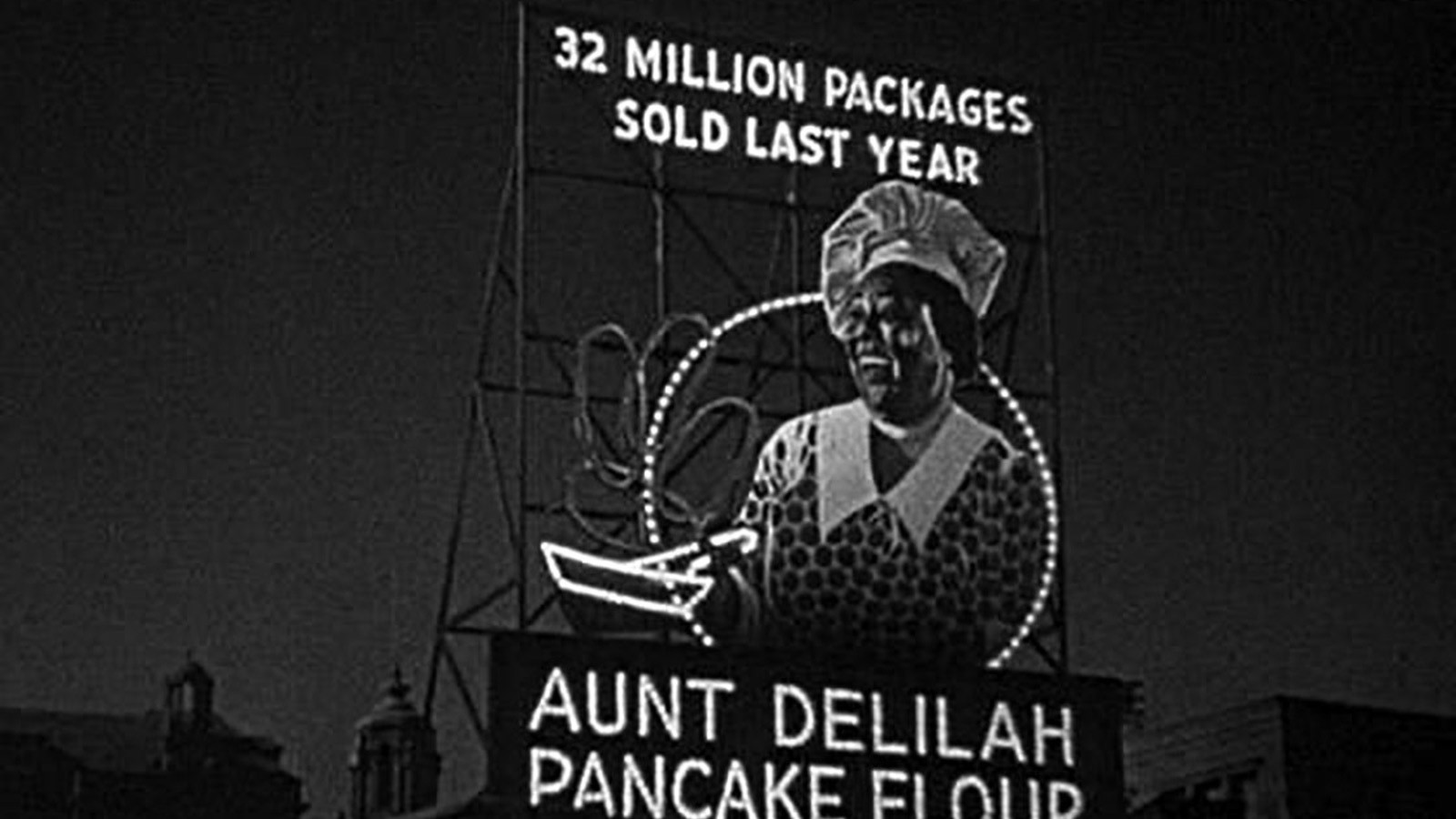
Others highlight the similarities between the two mothers, both of whom adore their daughters and are brought to grief by the younger women’s actions. Some scenes seem to mock Delilah, because of her supposed ignorance about her financial interests and her willingness to be in a support role, but the two women have built an independent business together. In dying and in death—especially with the long processional portraying a very dignified African-American community—Delilah is treated with great respect.
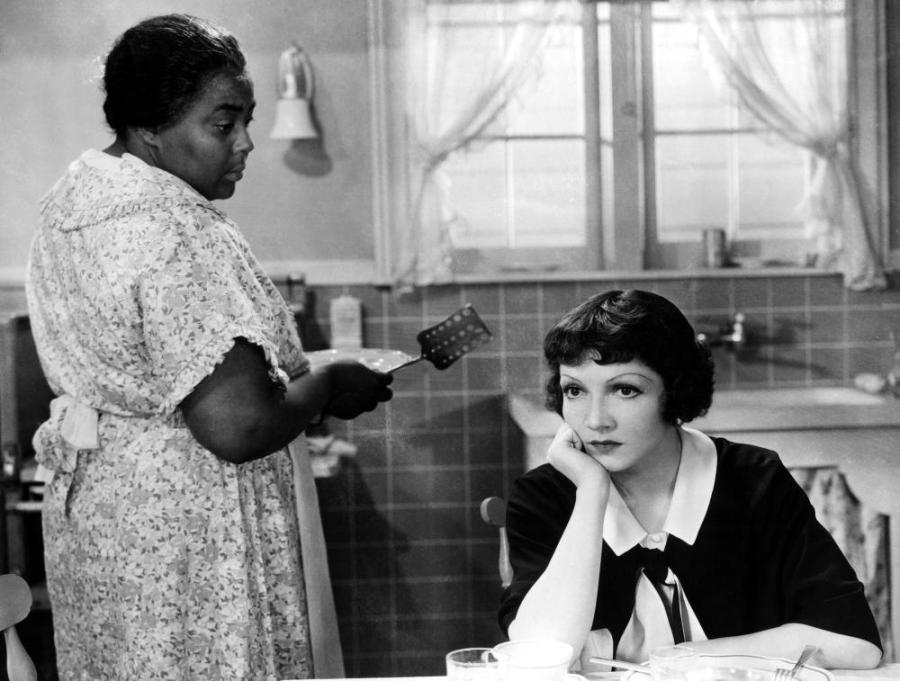
IMITATION OF LIFE, Louise Beavers, Claudette Colbert, 1934
According to Jean-Pierre Coursodon in his essay on John M. Stahl in American Directors,
Fredi Washington … reportedly received a great deal of mail from young Blacks thanking her for having expressed their intimate concerns and contradictions so well. One may add that Stahl’s film was somewhat unique in its casting of a Black actress in this kind of part – which was to become a Hollywood stereotype of sorts.
Later films dealing with mulatto women, including the 1959 remake of Imitation of Life, often cast White women in the roles.

It was adapted into two films, the first of which came out in 1934, starring Claudette Colbert and Louise Beavers, and the second of which came out in 1959, starring Lana Turner and Juanita Moore.
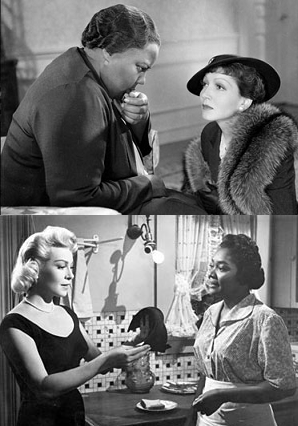
They’re both very good films in their own right.
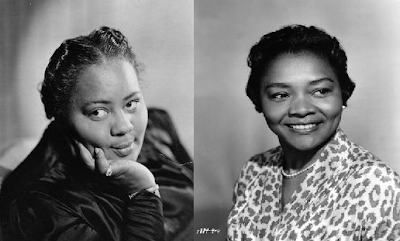
Delilah (Louise Beavers) – Annie (Juanita Moore)
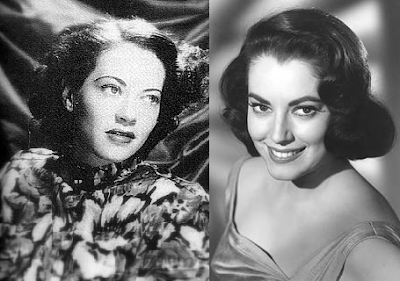
Peola (Fredi Washington) – Sarah Jane (Susan Kohner)
“Co-star Fredi Washington told film historian Donald Bogle, “the one thing that happened with Louise was that her agents immediately, when she made such a hit in the picture, upped her salary beyond what anyone was going to pay for the type roles they had for her. I told her at the time, I just don’t think this is wise. But of course, they were her agents.”
Beavers continued her busy career after Imitation of Life, but unlike other actors who enjoyed a breakout success, there would be no opportunity for Louise Beavers to follow with another signature role. She was the most popular and successful Black actress of this time, but there wasn’t anything to play except a long line of maid roles.”
Ruby Dandrige
Although McDaniel had previously garnered critical acclaim for her voicing of and appearance on The Beulah Show; as Beulah Brown- with co-star Ruby Dandridge (Mother of screen star Dorothy Dandrige), McDaniel was present in many films throughout her career in the 1920s and 1930s.
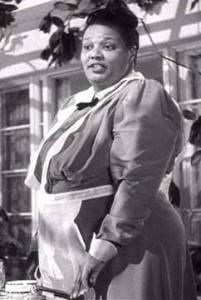
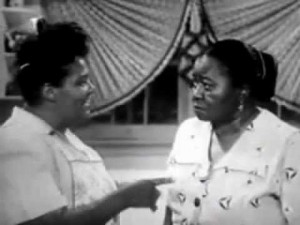
- Abbey Lincoln, Al Jolson, Amanda Randolph, Anna Robinson, Barbara Stanwyck, Beau Bridges, Bette Davis, Bob Corley, Butterfly McQueen, Cicely Tyson, Clark Gable, Claudia McNeil, D.W. Griffith, Dale Ricardo Shields, David O. Selznick, Diahann Carroll, Dorothy Dandrige, Edith Wilson, Estelle Evans, Esther Rolle, Ethel Waters, Harriet Beecher Stowe, Hattie McDaniel, Hess Love, Ida B. Wells, James Weldon Johnson, Jean Harlow, Jennie Lee, John Kenrick, John Wesley Holloway, Kathryn Stockett, Langston Hughes, Lauri Peters, Lillian Randolph, Louis Armstrong, Louise Beavers, Marla Gibbs, Marlon Hurt, Maxine Sullivan, Nan Martin, Nancy Green, Nell Carter, Octavia Spencer, Oprah Winfrey, Otis McDaniel, Rosie Lee Moore Hall, Ruby Dandridge, Sanaa Lathan, Shirley Temple, Sidney Poitier, Sojourner Truth, Theresa Harris, Viola Davis, Virginia Capers, Vivien Leigh, Whoopi Goldberg, William Hanna
iforcolor
ARCHIVIST, EDUCATOR, HISTORIAN, and ARTiST
Dale Ricardo Shields is highly accomplished African American actor, director, producer, and educator with a distinguished career in theatre and academia.
Here's a summary of his background and achievements:
Early Life and Family:
Born on November 4, 1952, in Cleveland, Ohio.
His family has a strong musical background; his grandfather and father were founding members of the Shields Brothers Gospel Quartet of Ohio, and his mother was part of the Turner Gospel Singers.
He is a cousin of boxing promoter Don King.
Education:
Graduated from John F. Kennedy High School in 1970.
Holds both a BFA (1975) and MFA (1995) from Ohio University.
Career and Contributions
Theatre Professional:
Actor: Has appeared on Broadway, Off-Broadway, Off-Off-Broadway, and in regional productions. His television credits include The Cosby Show, Another World, Guiding Light, Saturday Night Live, and the ITV series Special Needs. He has also appeared in commercials and films.
Director and Stage Manager: Has extensive professional credits in these roles, including projects at Lincoln Center, The Henry Street Settlement House (New Federal Theatre), The Negro Ensemble Company, and The Joseph Papp Public Theatre.
Assistant Director: Served as assistant to Lloyd Richards and assistant director for the New Federal Theatre premiere of Ossie Davis's play A Last Dance With Sybil starring Ruby Dee and Earl Hyman.
Educator:
Professor: He is a Professor of Acting, Directing, Black Theatre, Black Studies, and Stage Management. He has taught at various institutions, including Ohio University, The College of Wooster, Denison University, Macalester College, Susquehanna University (as artist-in-residence), and SUNY Potsdam.
Workshops and Programs: Conducted workshops for Joseph Papp's Playwriting in the Schools Program (PITS) at The Public Theatre for six seasons and represented the United States at the ASSITEJ Theatre Festival in London, England, in 1988.
Artistic Activist and Historian:
Iforcolor.org: Creator and archivist for the Black History website Iforcolor.org, dedicated to preserving and sharing information about African Americans and artists of color. He also maintains the "Black Theatre/African American Voices" website on Facebook.
Project1VOICE Liaison: Serves as the Project1VOICE Liaison for the state of Ohio, directing "One Play One Day" events in Cleveland since 2011.
Awards and Recognition:
The Kennedy Center/Stephen Sondheim Inspirational Teacher Award: Recipient in 2017.
Paul Robeson Award: Recipient in 2021 (jointly presented by the Actors' Equity Association and Actors' Equity Foundation).
AUDELCO/"VIV" Special Achievement Award: Received in 2017.
Tony Award Nominee: Nominated for the "Excellence in Theatre Education Award" in 2015 and 2017.
Ebony Bobcat Network (EBN) Legend Award: Received from Ohio University in 2022.
ENCORE AWARD / The Actors Fund: Received in 2020, 2021, 2022, and 2024.
Outstanding Professor Awards: Has received two of these and three "Educational Program of the Year" awards as a university professor.
The HistoryMakers archives: Interviewed and included in The HistoryMakers archives, permanently housed in the Library of Congress.
Dale Ricardo Shields is recognized for his profound impact on the lives of his students and his unwavering dedication to preserving and promoting Black theatre history and culture.

